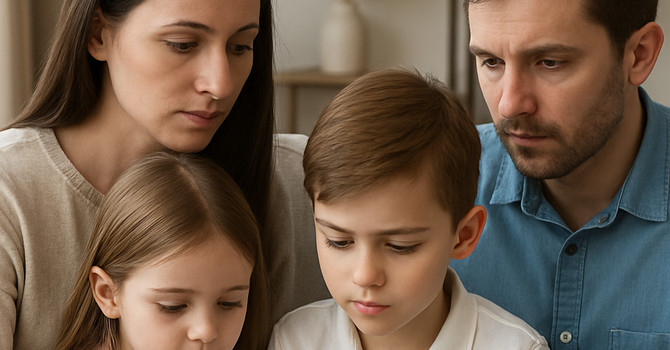
When people think of psychologists, they often imagine someone who has it all figured out. After all, psychologists are trained to help others manage their emotions, navigate stress, and work through difficult experiences. But the reality is that, like everyone else, psychologists are human, too. Just because someone knows a lot about mental health doesn’t mean they’re immune to the full spectrum of emotions—including sadness.
The Universality of Sadness
Sadness is a universal emotion that touches everyone at some point. It’s a natural response to loss, disappointment, or feeling overwhelmed, and it plays an important role in our emotional health. Sadness signals to us that something isn’t right, allowing us to slow down, reflect, and process our experiences. It’s part of being human, regardless of profession.
For psychologists, this truth still holds. Even with years of training and experience, they face life’s challenges just like everyone else. They may experience sadness due to personal losses, relationship struggles, health issues, or even second-hand stress from hearing their clients’ struggles day in and day out.
The Pressure to "Have It Together"
There can be an additional layer of pressure for psychologists when they feel sadness. Many people assume that because psychologists teach others how to manage their emotions, they should always have perfect emotional control. However, this expectation can lead to feelings of isolation or guilt when they experience sadness, making it even harder to reach out for help.
Psychologists, like anyone else, need support systems. They turn to their own therapists, mentors, or trusted colleagues to process their emotions and ensure they don’t burn out. Being able to sit with and process their own sadness allows psychologists to show up better for their clients, bringing more empathy and understanding to their practice.
Emotional Resilience Doesn’t Mean Emotional Immunity
Many psychologists develop emotional resilience through their work, but resilience doesn’t mean they’re invulnerable. Emotional resilience is about the ability to bounce back from difficult situations, not avoiding them altogether. Psychologists practice the same coping skills they teach their clients, whether that’s mindfulness, acceptance, or self-compassion. This helps them maintain balance, but it doesn’t mean they won’t have moments of sadness.
When they do, it serves as a reminder that emotions aren’t something to be “fixed” or suppressed—they are meant to be felt, understood, and integrated into our lives. This mindset is at the heart of many therapeutic approaches, including Acceptance and Commitment Therapy (ACT) and Internal Family Systems (IFS), both of which promote acceptance of all emotions.
Sadness Can Lead to Greater Empathy
In many ways, a psychologist’s own experience with sadness can enhance their work. Understanding the complexity of their own emotions can deepen their empathy and ability to connect with clients. It helps them relate to the struggles their clients face and provides a foundation for offering more authentic, meaningful support.
Moreover, psychologists who have faced sadness and worked through it can model healthy emotional regulation and coping strategies for their clients. They can demonstrate that it's okay to feel sadness and that there are ways to manage and move through it without being consumed by it.
A Culture of Compassion
Psychologists are constantly advocating for mental health, both in the therapy room and in broader society. Part of this advocacy involves challenging the stigma that people—even those trained in mental health—shouldn’t feel sadness. By acknowledging their own struggles, psychologists contribute to creating a culture of compassion and emotional honesty. This culture promotes the idea that it’s okay not to be okay and that seeking support is a strength, not a weakness.
Final Thoughts
At the end of the day, sadness is a part of life that touches everyone, including psychologists. Experiencing sadness doesn’t make someone less capable or competent in their role; if anything, it can make them more compassionate and effective. As we all navigate life’s ups and downs, it’s important to remember that emotions, even difficult ones like sadness, are part of what makes us human—and it’s through understanding and accepting these emotions that we grow.
No matter who you are or what you do, sadness can be an opportunity for reflection, connection, and growth. Even psychologists need that reminder sometimes.
.JPEG)
.JPEG)





